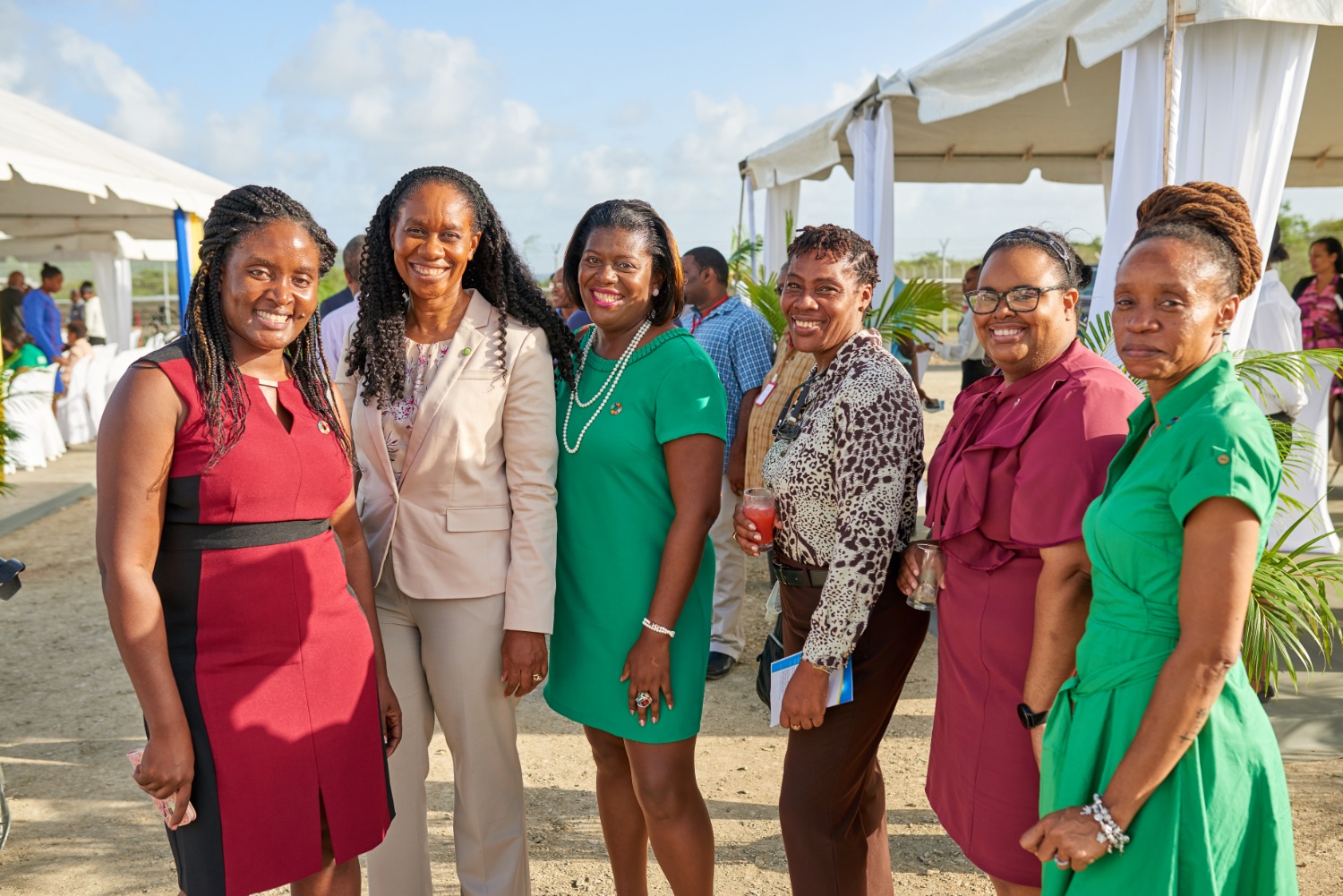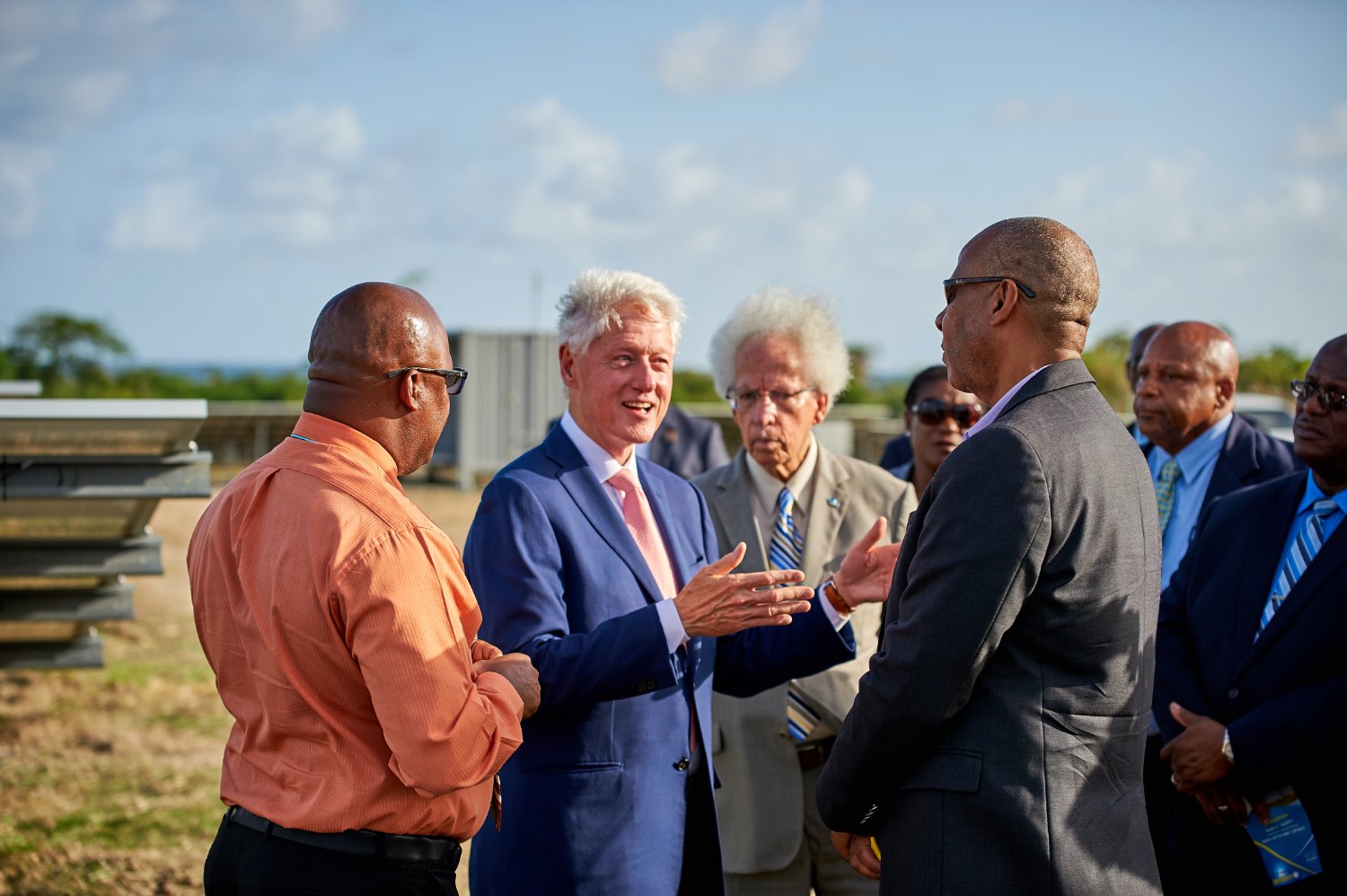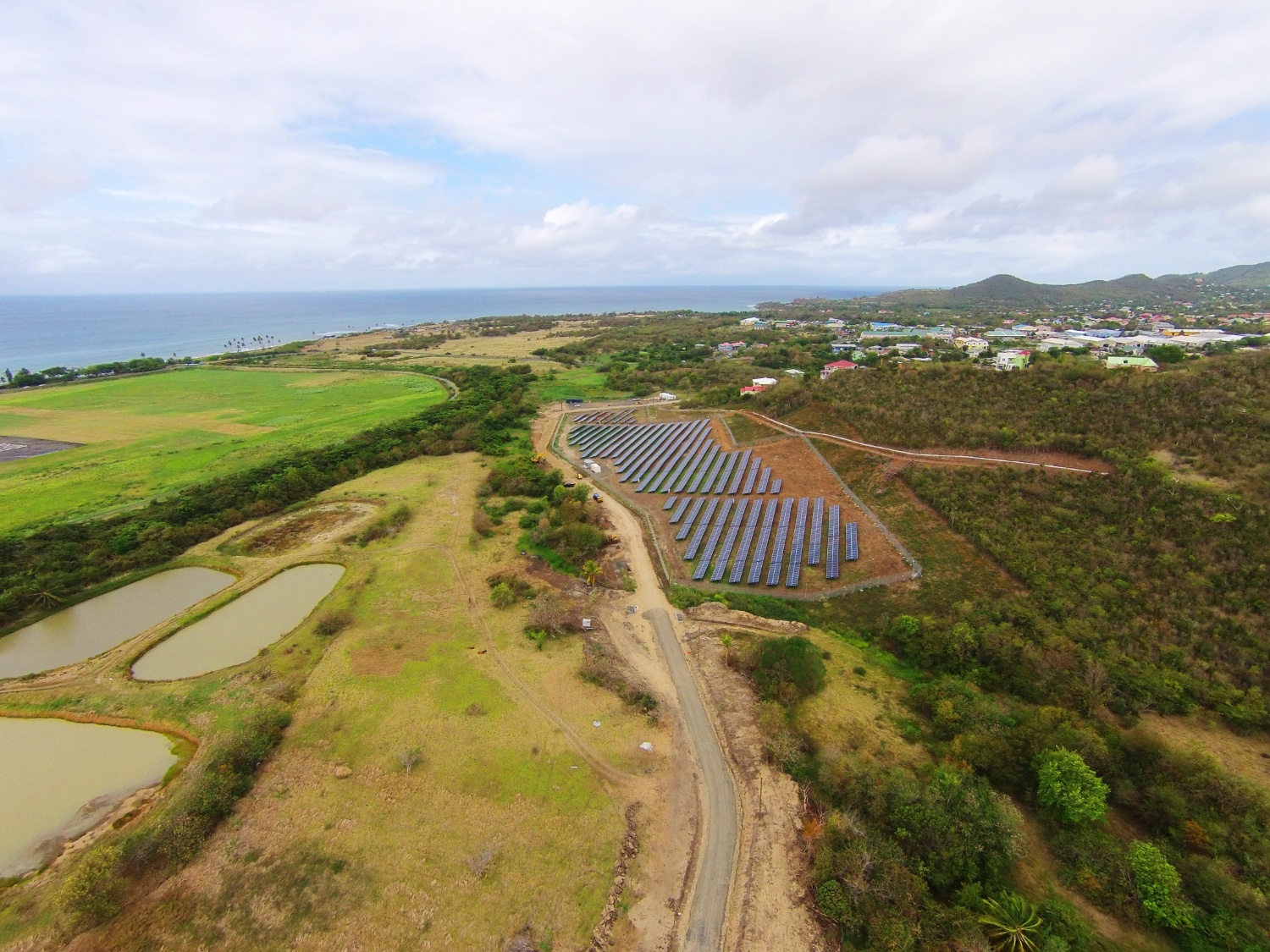Why gender equality is critical in the fight against climate change.
How hundreds of women are leading the charge.
New York, New York — It’s a drizzly morning in midtown Manhattan, and I’m sitting across from Chelsea Clinton and colleagues from the Clinton Climate Initiative. On a large screen, we see the faces of more than two dozen women from Barbados, Guyana, and more than 10 other Caribbean countries. They’re buzzing with energy.
These women are from coastal and island nations on the frontlines of climate change, where they’re among the first to be affected by rising sea levels and increasingly intense tropical storms. We’re located hundreds of miles apart but through video conference we’ve come together today to talk about an important shared goal: working together to empower more women to lead the charge in the fight against climate change.
These are the faces of the Women in Renewable Energy Network – called the “WIRE Network” for short. Each is determined to expand what’s possible for women leaders who work in the renewable energy industry and through this program they’re making that a reality. Here are three reasons why they believe that women should lead the fight against climate change.
Women are disproportionately affected by climate change.
“Climate change affects everyone, but it has a unique impact on girls and women. So there’s a lot of power when women come together to share their stories,” says member Lydia Singh, who is from the twin isle of Trinidad and Tobago. By sharing their unique experiences and perspectives, women in regions that are vulnerable to climate change can help bring attention to the ways that it exacerbates deep-seated gender inequalities.
Consider this: In rural communities around the world, young girls and women are often responsible for traveling long distances to collect water, food, firewood, and other household materials. After an environmental disaster, they may have to travel even farther to find these resources, exposing them to increased risks, including violence. According to some researchers, women are 14 times more likely to die during natural disasters. Members of this network believe that women – and their unique life experiences – should be equally represented in the fight against climate change.
Photos from the field
Last year, two members of the WIRE Network attended the opening of a new solar farm in La Tourney, St. Lucia. The solar farm will meet about 5% of St. Lucia’s electricity demand. (Photos courtesy of LUCELEC)
Women’s participation and leadership are critical to fight climate change.
Another member, Khadija Usher from Belize shares: “As more women get involved in environmental and energy issues, we believe they can be a secret weapon in the fight against climate change. Every member of WIRE wants to be a change agent for the girls and other women in our community, and also the world.”
“As more women get involved in environmental and energy issues, we believe they can be a secret weapon in the fight against climate change.” ”Khadija Usher
This is because women are on the frontlines. They take on informal leadership roles, from diversifying and utilizing drought resilient crops, launching small businesses in their communities, and even being the first to respond in the face of crisis of disaster. Women are also the key to helping children receive proper nutrition, education, and broader support to succeed in life. So it follows that cultivating the knowledge, resources, and relationships in women leaders is a vital part of creating a shared sustainable future.
Women aren’t equally represented in the renewable energy industry.
“Strong women’s leadership and increased gender diversity in the workforce are crucial as countries adapt to climate change and transition to a clean energy economy,” says member Davina Layne. However, women only account for 24% of total jobs in the energy industry. At the world’s 200 largest electric utilities, they represent only 16% of board members, and 14% of senior management leadership.
To tackle this gap, mentorship is critical. It’s difficult to believe what you can’t see, to imagine what you’ve never experienced. Being a part of a mentorship program can help future leaders envision themselves in more senior roles.
Davina is from Barbados and joined the network two years ago as a mentee. She has since gone on to become a successful entrepreneur and mentor in addition to her full-time role in sustainable tourism. She reflects: “It is a great feeling to share a connection with other women, who check up on you, and encourage you as you do them. It has given me the opportunity to write a better future for myself and for others.”
The WIRE Network is just one tool in the fight against climate change. But it’s a crucial one. Reaching girls and women who are already disproportionately feeling the impact of climate change not only improves their lives through increased career opportunities, but it shows how a collective voice can create lasting change. Together with this group of women we’ve gathered today, we’re building a renewable, sustainable tomorrow.






